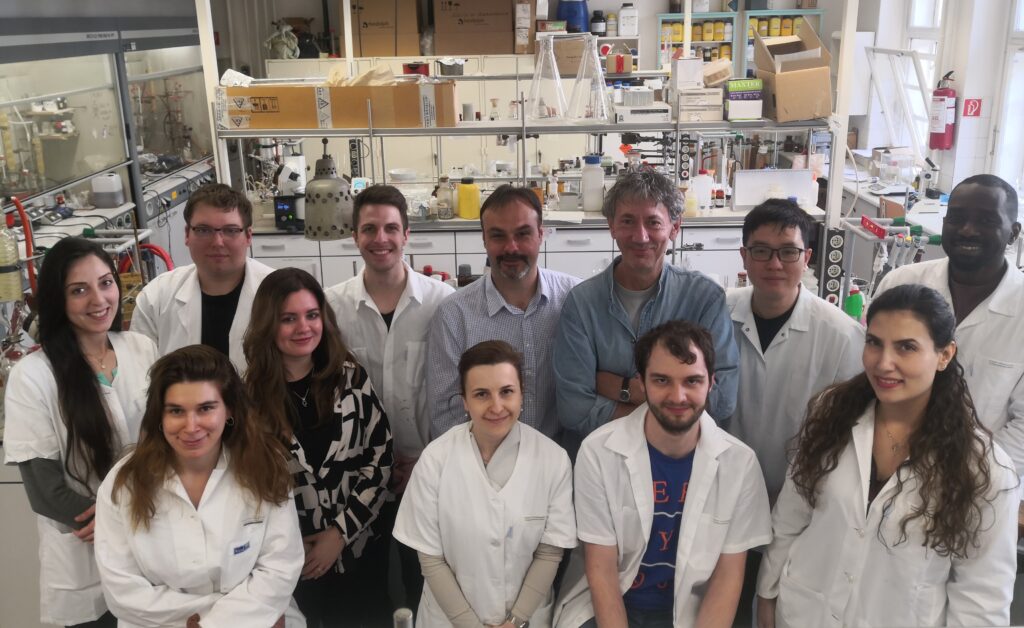Research leader name
Prof. Dr. István Szatmári

The primary goal of organic chemistry syntheses is the preparation of organic materials used in everyday life in the desired quality economically, in a competitive manner and with the possibly smallest environmental impact, paying also attention to the sustainability of the production. Accordingly, among the most important requirements imposed to processes used in the pharmaceutical industry include the economical and environmentally friendly production of the active ingredients, which necessitates the application of sustainable and energy-efficient processes and raw materials from natural, renewable sources. To these guidelines were specially emphasized during the stereoselective production of optical isomers, when the selective preparation of single enantiomers can greatly contribute to improving the economy and sustainability of the processes. All of these makes the development of efficient, stereoselective catalysts, the use of natural, easily available optically pure materials, and effective activation methods an essential task.
Downloads
In the research group, the production of various biologically active organic molecules is realized by revealing new reaction pathways. On one hand, the research covers the synthesis of enantiomerically pure compounds, which may be used in the pharmaceutical industry as intermediates, using methods that meet the requirements of modern organic chemistry. on the other hand, we develop suitable processes or catalysts that enable the synthesis of enantiomerically pure organic substances, with particular attention to the principles of green chemistry, such as the use of heterogeneous catalysts or natural chirality sources, solvent-free or with solvents also obtained from renewable biomass and efficient energy transfer methods such as microwave irradiation or mechanical energy, or by implementation of the reaction in continuous flow systems.

At the same time, in the research group organic compounds that can potentially be used for medicinal purposes are synthetized. These include materials obtained using natural terpenes as starting compounds and the synthesis of various quinoline derivatives such as kynurenic acid and 8-hydroxyquinoline derivatives. The latter are compounds with a potential neuroprotective function and a promising antitumor effect. Neurodegenerative diseases affecting one third of the population are compelling reason for the synthesis of neuroprotective effects, while in the case of new derivatives with anti-tumor effects, the background of the research is the difficulties in the therapeutic methods and the fluctuations in the recovery rates. The research also covers the synthesis of antiarrhythmic derivatives, since sudden cardiac death is the leading cause of death today and so far no breakthrough success has been achieved in the synthesis of pharmaceuticals intended to prevent live-threatening arrhythmias.



